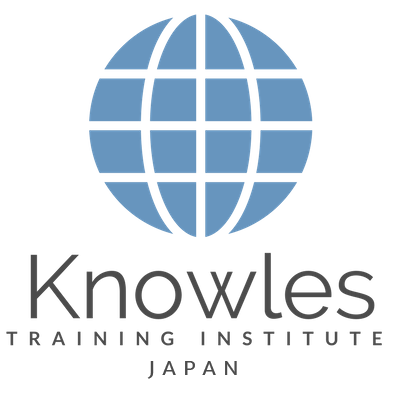Six Sigma Training Course in Japan
Our corporate training course is also available in Tokyo, Yokohama, Osaka, Nagoya, Sapporo, Fukuoka, Kawasaki, Kobe, Kyoto, Saitama, Hiroshima, Sendai, Chiba, Kitakyushu, Sakai, Niigata, Hamamatsu, Okayama, Kumamoto, Shizuoka, Kagoshima, Himeji, Utsunomiya, Matsuyama, Nara, Toyama, Kurashiki, Takamatsu, Kanazawa, Oita, Naha (Okinawa), Nagasaki, Kanazawa, Hakodate, Nikko, Nara, Kamakura, Takayama, Nikko.
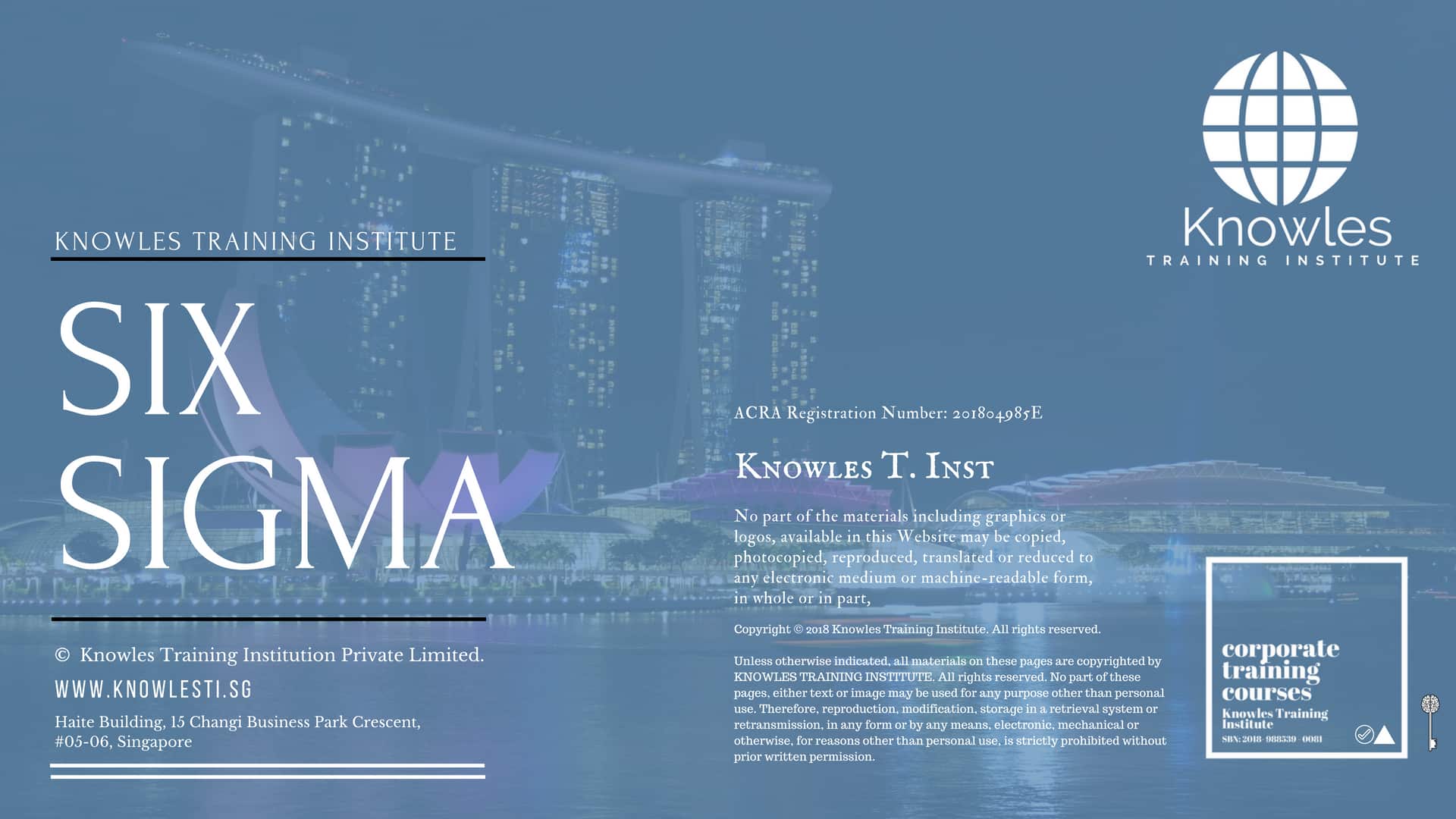
About This Six Sigma Training Course in Japan
Six Sigma Course in Japan
One of the most well-known strategy in the workplace is the Six sigma. Introduced by Bill Smith and made known by Jack Welch, Six Sigma has proven to be an effective tool to achieve accurate and effective implementation of quality principles and techniques. Find out more about Six Sigma in this article.
Who Should Attend This Six Sigma Course in Japan Workshop
This Six Sigma Course in Japan workshop is ideal for anyone who would like to gain a strong grasp and improve their Six Sigma.
All Staff Within An Organisation
Managers
Team Leaders
Executives
Assistants
Officers
Secretaries
Group Size For This Six Sigma Training Program in Japan
The ideal group size for this Six Sigma course in Japan is:
Minimum: 5 Participants
Maximum: 15 Participants
Course Duration For This Six Sigma Skills Course in Japan
The duration of this Six Sigma Course in Japan workshop is 2 full days. Knowles Training Institute Japan will also be able to contextualised this workshop according to different durations; 3 full days, 1 day, half day, 90 minutes and 60 minutes.
2 Full Days
9 a.m to 5 p.m
Six Sigma Course in Japan Benefits
Below is the list of course benefits of our Six Sigma course in Japan
- Assists the organization in eliminating errors
- Improves the business processes and sustains the quality
- Enhance customer satisfaction through ensuring compliance with the standards
- Improves revenue and efficiency of the business processes
- Improves the productivity and efficiency of the company
Six Sigma Course in Japan Objectives
Below is the list of course objectives of our Six Sigma course in Japan
- Understand the concept of six sigma and it’s successful implementation
- Determine the techniques to identify the drawbacks in the business process
- Discuss the benefits and challenges of six sigma
- Identify the methodologies for implementation of six sigma quality
- Discuss how six sigma improves the customer’s experiences and lower the costs
- Identify techniques to monitor the implementation of six sigma quality on regular basis
- Adopt best practices of industry
Course Content For This Six Sigma Training Course in Japan
Below is the list of course content of our Six Sigma training course in Japan
- What is six sigma?
- What is a six sigma calculator and how is it used?
- How six sigma improves the customer’s experiences, lowers the costs of the company and builds better leaders?
- What are the challenges associated with implementation of six sigma quality?
- Success stories of successful organizations implementing six sigma
- Case study and group discussion
Six Sigma Course in Japan Value Added Materials
Each participant will receive the following materials for the Six Sigma course in Japan
Six Sigma Course in Japan Learner’s Guide
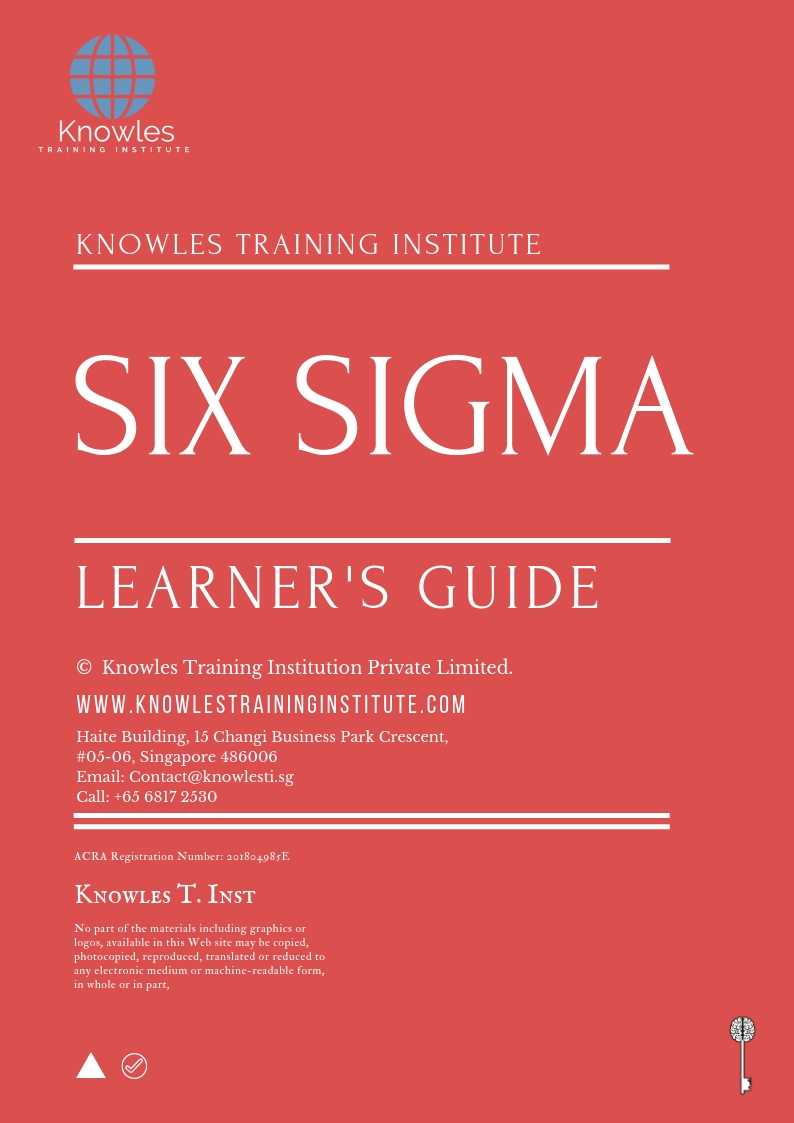
Six Sigma Course in Japan Handouts
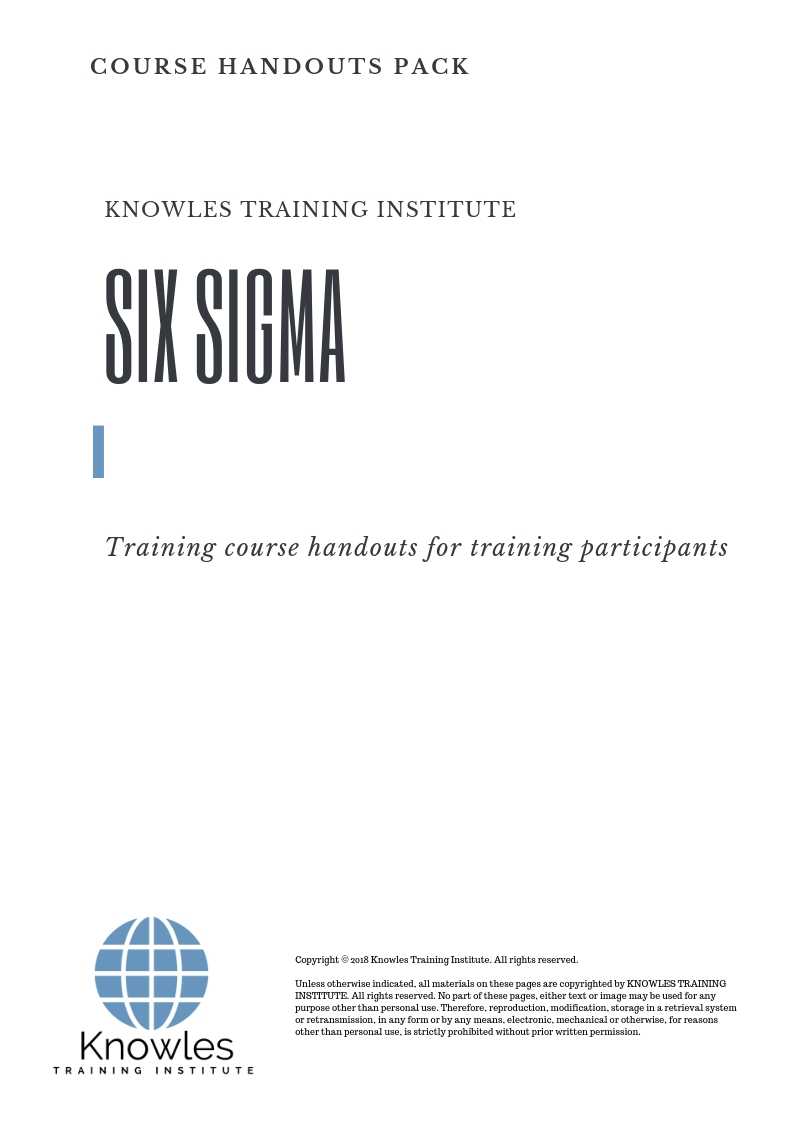
Six Sigma Course in Japan PPT Slides Used During Course
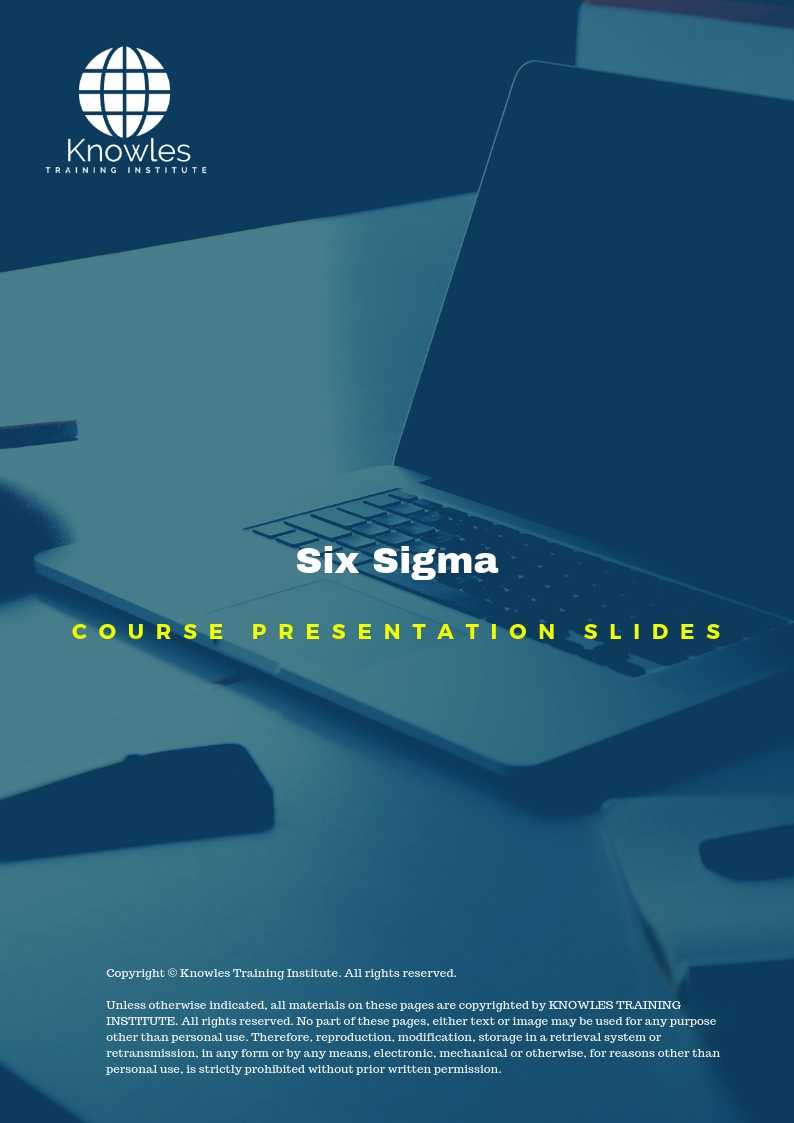
Six Sigma Course in Japan Certification
Each course participant will receive a certification of training completion
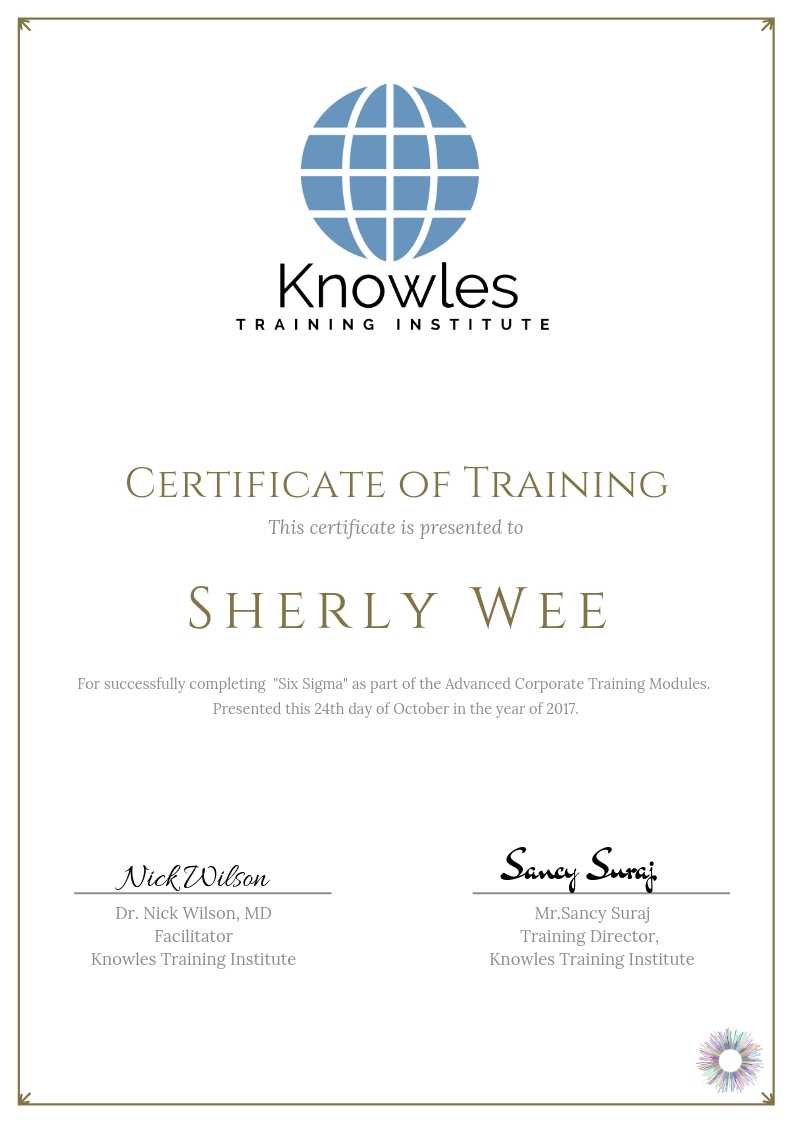
Course Fees For Six Sigma Course in Japan
There are 4 pricing options available for this Six Sigma training course in Japan. Course participants not in Japan may choose to sign up for our online Six Sigma training course in Japan.
- USD 1,019.96 For a 60-minute Lunch Talk Session.
- USD 434.96 For a Half Day Course Per Participant.
- USD 659.96 For a 1 Day Course Per Participant.
- USD 884.96 For a 2 Day Course Per Participant.
Discounts available for more than 2 participants.
Upcoming Six Sigma Training Course in Japan Schedule
Contact us for the latest Six Sigma course in Japan schedules:
Email: contact@knowlesti.jp
Message:
Download Six Sigma Course in Japan Brochure
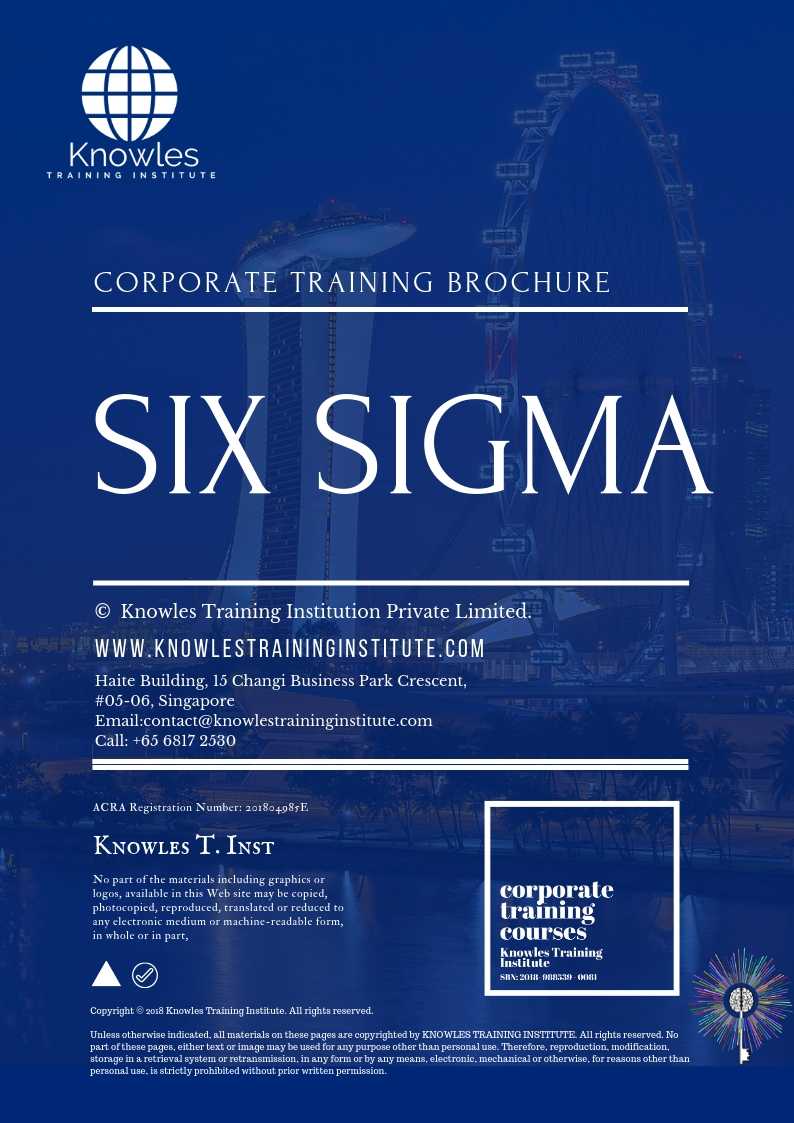
Request for this Six Sigma course in Japan brochure. Fill up the short information below and we will send it to you right away!
Post Training Support: A vast majority of training does not have any effect beyond 120 days. To work, training has to have a strong pre- and post-training component. Post-training reinforcement helps individuals to recall the understanding and ask questions.
Blended Learning: Learning does not occur in the classroom. Virtually everybody prefers distinct ways of learning. Successful learning should have a multi-channel, multi-modal strategy.
- We Understand The Industry: We’ve got a profound comprehension of the business, business design, challenges, strategy and the that our participants are in and have designed the courseware to cater to their professional needs.
- Course Content: Knowles Training Institute’s material is relevant, of high quality and provide specific learning results. Participants will leave the training course feeling as they have gained a strong understanding and will also be in a position to execute what they have learned sensibly.
Course Development — The workshop modules follow a systematic and logical arrangement. This structure helps to ensure that the course material allows the facilitators to deliver the course in a logical arrangement. Consider the subjects as building bricks into learning, our facilitators slowly build towards a comprehensive picture of this entire topic.
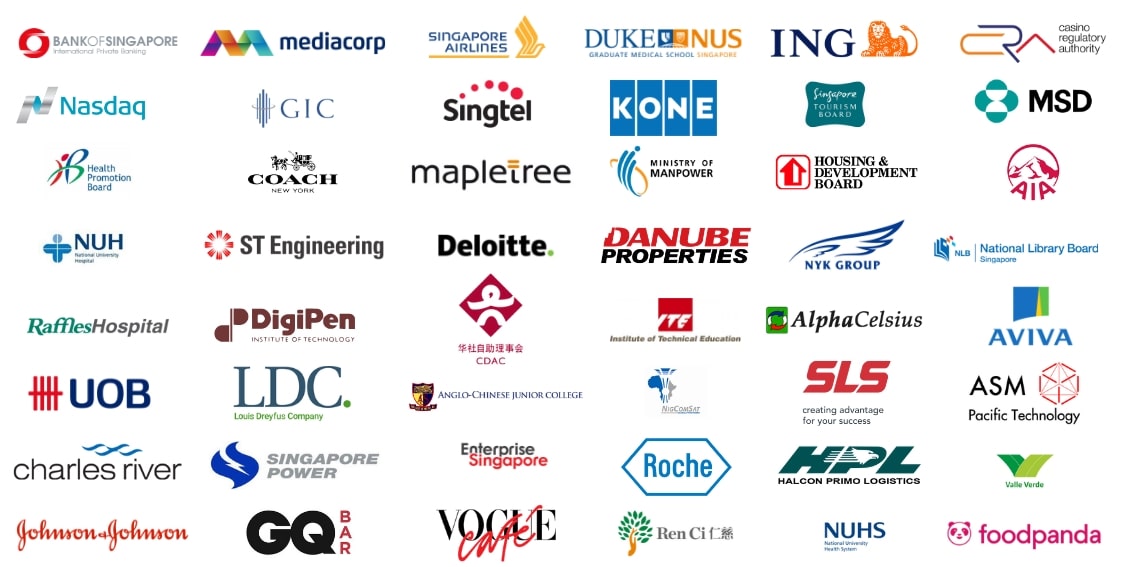

Course Enquiries
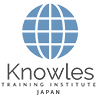
Fill up the form and we will get back to you in less than 1 working day.
Alternatively, give us a call to have one of our training consultants contact you. Our corporate training courses can be contextualized to meet your organization’s training needs. Leverage on our large pool of professional trainers and consultants for your organization’s training needs.
Email: contact@knowlesti.jp
We Guarantee 100% Privacy. We Respect Your Privacy. Your Information Will Never Be Shared.
